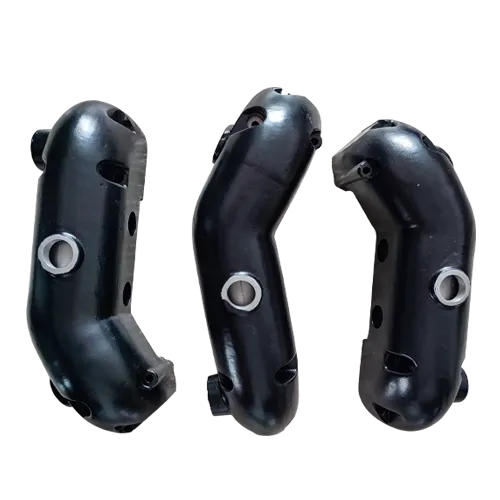Mobile:+86-311-808-126-83
Email:info@ydcastings.com
English
die casting factory
The Rise of Die Casting Factories An Essential Component in Modern Manufacturing
Die casting is a manufacturing process that has gained tremendous importance in various industries ranging from automotive to electronics. At the heart of this process lies the die casting factory, a specialized facility where molten metal is injected into molds to create intricate and durable components. Over the years, die casting factories have evolved significantly, adapting to technological advancements and increasing market demands.
Understanding Die Casting
Die casting is defined as a metal casting process that involves forcing molten metal under high pressure into a mold cavity. This method is used for a wide range of metals, including aluminum, zinc, and magnesium. The primary appeal of die casting lies in its ability to produce complex shapes with a high level of precision, making it ideal for mass production.
The basic operation of a die casting factory encompasses several key stages preparing the die, melting the metal, injecting it into the die, and finally, cooling and retrieving the casted product
. Each of these steps requires careful execution to ensure product quality and efficiency.Advantages of Die Casting
One of the most significant advantages of die casting is its ability to produce highly accurate and repeatable parts. The process allows for tight tolerances and a smooth surface finish, reducing the need for extensive post-processing. This characteristic is particularly important in industries where precision is critical, such as aerospace and automotive manufacturing.
Furthermore, die casting is highly efficient for large-scale production. Once the initial setup is complete, the speed at which parts can be produced is remarkable, with cycles often taking only a few seconds. This efficiency not only reduces production costs but also meets the ever-growing demand for rapid product development and delivery.
die casting factory

Automation and Technology in Die Casting Factories
With the advent of advanced technologies, modern die casting factories are increasingly incorporating automation and robotics into their operations. Automated systems can handle the loading and unloading of materials, monitoring of the casting process, and even quality control checks, enhancing productivity and reducing the risk of human error.
Moreover, the integration of computer numerical control (CNC) machines in die casting facilities allows for even greater precision in machining cast components. These innovations make it possible to produce more complex designs while maintaining high standards of quality and efficiency.
Environmental Considerations
As die casting factories expand, so does the focus on sustainability. Many facilities are investing in technologies that reduce energy consumption and waste. For instance, recycling metal scraps and using energy-efficient melting furnaces are becoming common practices. By adopting greener technologies and practices, die casting manufacturers can minimize their environmental impact while also reducing costs.
The Future of Die Casting Factories
Looking ahead, die casting factories are expected to continue evolving with the industry. The rise of electric vehicles, renewable energy technologies, and smart electronics will drive demand for lightweight and robust components. As a result, die casting will remain an integral part of modern manufacturing, adapting to new materials and methods.
In conclusion, die casting factories play a vital role in the manufacturing landscape. Their ability to produce complex, high-quality components quickly and efficiently makes them indispensable across various industries. As technology progresses and sustainability becomes a focal point, die casting factories will likely embrace new innovations to stay competitive and meet the needs of a changing market. This evolution not only underscores the resilience of the die casting process but also its significance in shaping the future of manufacturing.
-
Superior Aluminum Castings in Automotive Engine PartsNewsAug.22,2025
-
Common Materials Used in Fan Housing ManufacturingNewsAug.22,2025
-
Symptoms of a Stuck Automobile Water Pump ImpellerNewsAug.22,2025
-
The Importance of Valve Castings in Water TreatmentNewsAug.22,2025
-
Welding Techniques for End Cap Stainless Steel FittingsNewsAug.22,2025
-
How to Install a Water Pump Connector ProperlyNewsAug.22,2025











